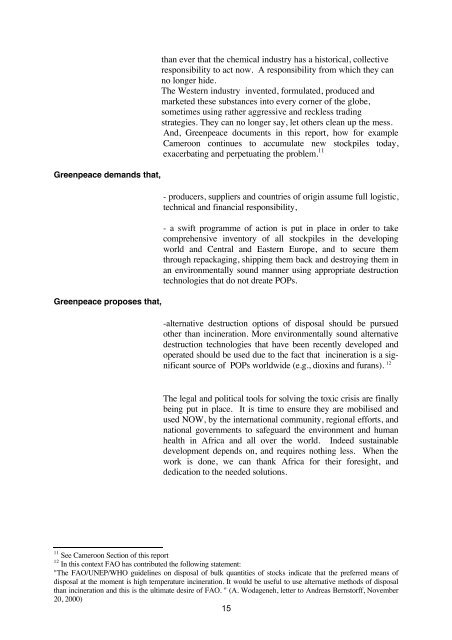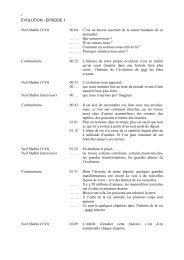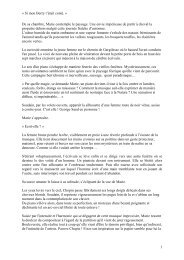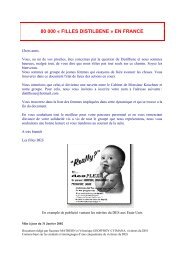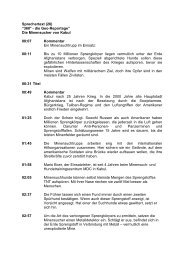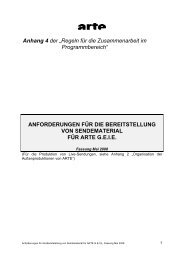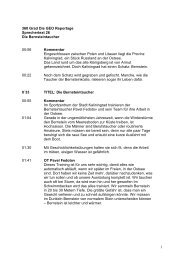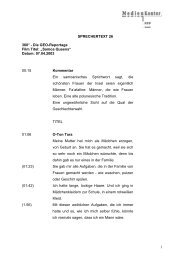POPs IN AFRICA HAZARDOUS WASTE TRADE 1980 - 2000 ... - Arte
POPs IN AFRICA HAZARDOUS WASTE TRADE 1980 - 2000 ... - Arte
POPs IN AFRICA HAZARDOUS WASTE TRADE 1980 - 2000 ... - Arte
Create successful ePaper yourself
Turn your PDF publications into a flip-book with our unique Google optimized e-Paper software.
Greenpeace demands that,<br />
Greenpeace proposes that,<br />
than ever that the chemical industry has a historical, collective<br />
responsibility to act now. A responsibility from which they can<br />
no longer hide.<br />
The Western industry invented, formulated, produced and<br />
marketed these substances into every corner of the globe,<br />
sometimes using rather aggressive and reckless trading<br />
strategies. They can no longer say, let others clean up the mess.<br />
And, Greenpeace documents in this report, how for example<br />
Cameroon continues to accumulate new stockpiles today,<br />
exacerbating and perpetuating the problem. 11<br />
- producers, suppliers and countries of origin assume full logistic,<br />
technical and financial responsibility,<br />
- a swift programme of action is put in place in order to take<br />
comprehensive inventory of all stockpiles in the developing<br />
world and Central and Eastern Europe, and to secure them<br />
through repackaging, shipping them back and destroying them in<br />
an environmentally sound manner using appropriate destruction<br />
technologies that do not dreate <strong>POPs</strong>.<br />
-alternative destruction options of disposal should be pursued<br />
other than incineration. More environmentally sound alternative<br />
destruction technologies that have been recently developed and<br />
operated should be used due to the fact that incineration is a significant<br />
source of <strong>POPs</strong> worldwide (e.g., dioxins and furans). 12<br />
The legal and political tools for solving the toxic crisis are finally<br />
being put in place. It is time to ensure they are mobilised and<br />
used NOW, by the international community, regional efforts, and<br />
national governments to safeguard the environment and human<br />
health in Africa and all over the world. Indeed sustainable<br />
development depends on, and requires nothing less. When the<br />
work is done, we can thank Africa for their foresight, and<br />
dedication to the needed solutions.<br />
11<br />
See Cameroon Section of this report<br />
12<br />
In this context FAO has contributed the following statement:<br />
"The FAO/UNEP/WHO guidelines on disposal of bulk quantities of stocks indicate that the preferred means of<br />
disposal at the moment is high temperature incineration. It would be useful to use alternative methods of disposal<br />
than incineration and this is the ultimate desire of FAO. " (A. Wodageneh, letter to Andreas Bernstorff, November<br />
20, <strong>2000</strong>)<br />
15


